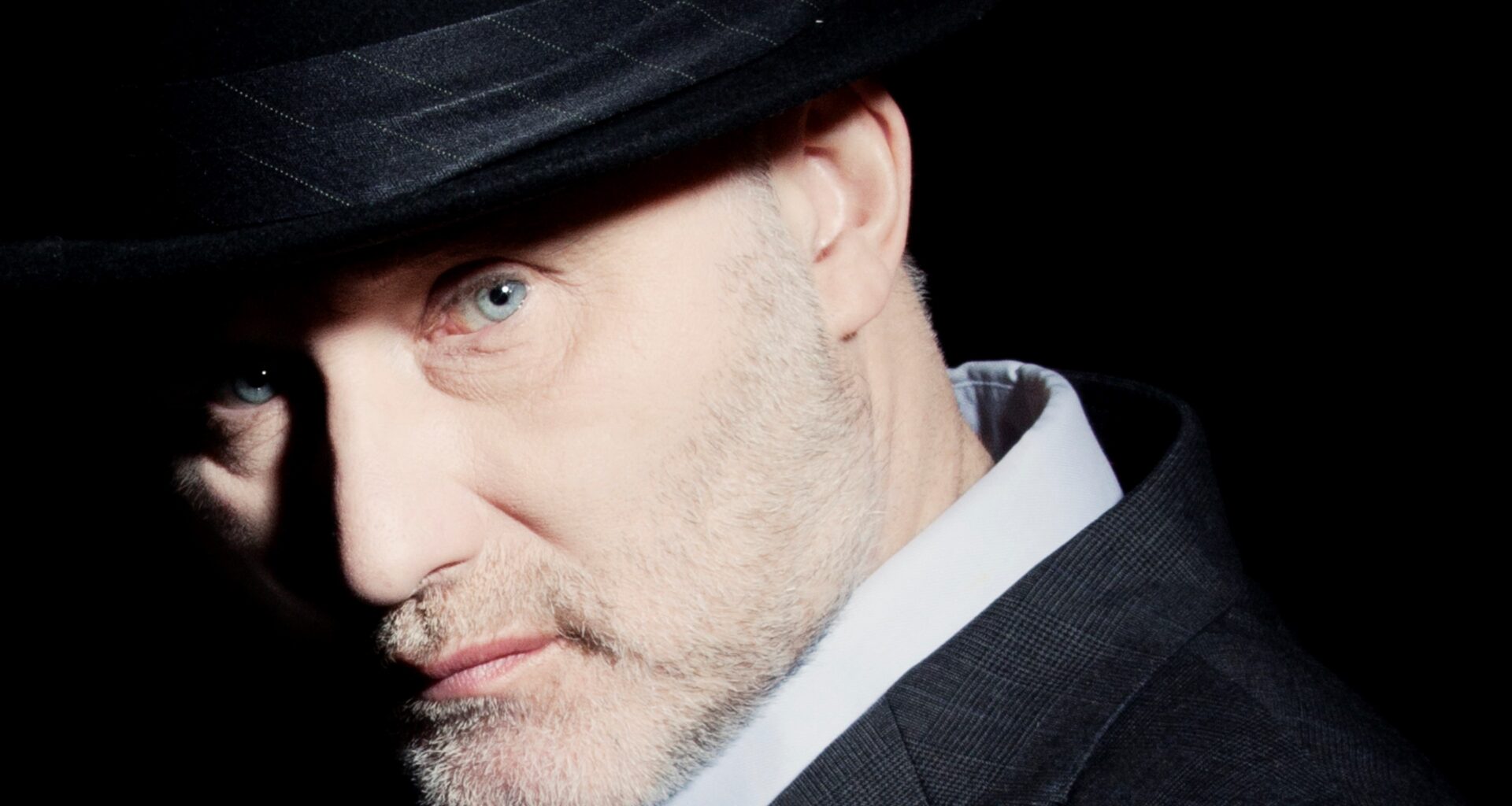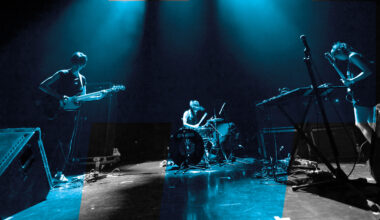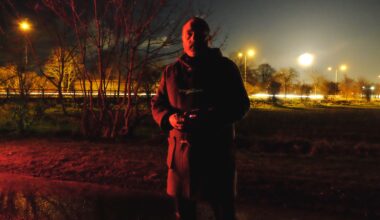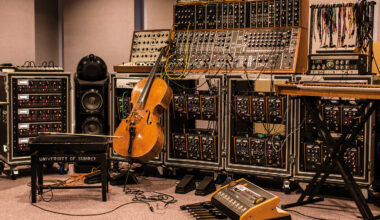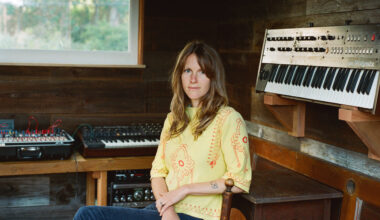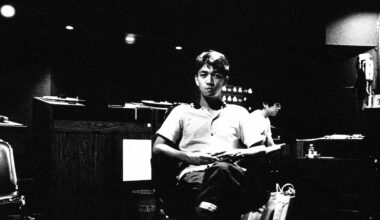United by their passion for dub, funk and a certain Miles Davis record, legendary bassists Jah Wobble and Bill Laswell have again combined forces for an extraordinary new project
“There were two things that I was really good at in life – playing bass and clay pigeon shooting,” says Jah Wobble. “I only did clay pigeon shooting once, but I was really good at it. I’m a slow learner with a lot of things, it took me three attempts to pass my driving test, for example, but playing bass just suddenly happened, and I found that I could do stuff pretty naturally.”
It’s a little after 1am and Wobble and his band Invaders Of The Heart have just finished a second set of the day in Tokyo. Far from being worn out and desperate for sleep, the man christened John Wardle talks with a fast-paced, ceaseless enthusiasm and energy.
One of the topics he’s fired up about is ‘Realm Of Spells’, a new album recorded with his long-standing collaborator and fellow bassist Bill Laswell, a session which found Wobble picking up a bass guitar that he hadn’t used since his days with John Lydon and Keith Levene in Public Image Ltd. It’s as if he’s found a time machine, transporting him and Laswell back to their formative years in the latter half of the 1970s.
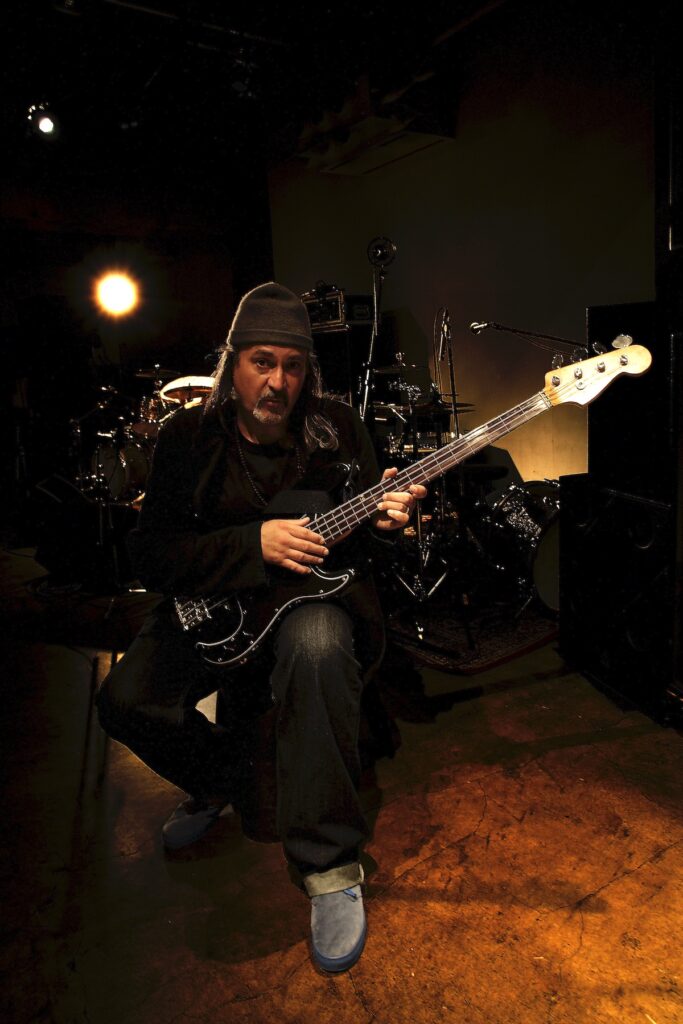
After cutting his teeth in various funk and R&B groups around Michigan, Bill Laswell found himself drawn to New York’s late-70s arts scenes.
“You don’t have many options if you want to do extreme things,” he says down the line from his Manhattan home. “It’s just not going to happen anywhere except New York. I came here and started in the Lower East Side and Brooklyn and Queens, slowly building up a base.”
Despite a tendency towards a nomadic existence, with several years spent in Africa and in India, Laswell is content to stay put in Hell’s Kitchen, to the west of Times Square, and you can hear the omnipresent buzz and vibrancy of the city from just beyond the window. The New York he found himself in when he arrived was very much one of eclecticism and fluid crossovers.
“It wasn’t just punk,” says Laswell. “It was the avant-garde and improvisation and free jazz. Everything was happening at exactly the same time. I gravitated to all of it. I had no money, and so I was just doing whatever gigs I could find, playing in lofts with people like Don Cherry or Rashied Ali. It was different to just being in a rock band or a punk band. People would ask me why I came to New York, and I would tell them it’s because I wanted to meet Ornette Coleman and Miles Davis, and I met both of them almost immediately after getting here.”
Despite mixing with the heavyweights of jazz, Laswell’s break came with Material, the group he formed in 1979 with Michael Beinhorn (synths), Cliff Cultreri (guitars) and Fred Maher (drums). Their first two EPs were among the most borderless of the short-lived no wave movement, taking in jazz, sampling and feisty guitar motifs. Among their earliest fans was Jah Wobble.
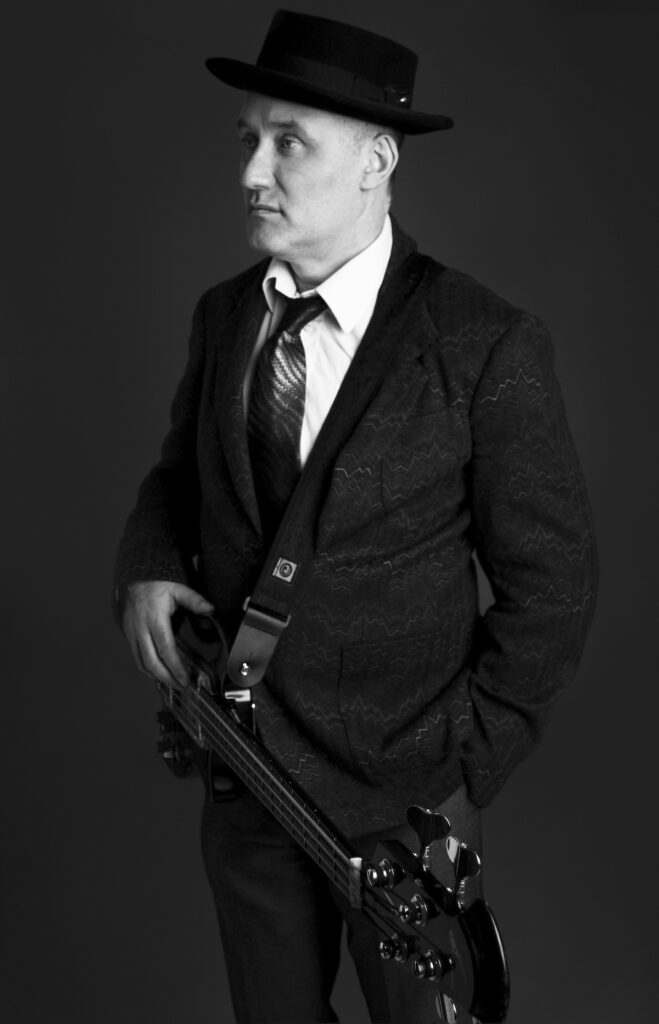
“I was aware of Bill from the very beginning,” says Wobble. “Their first recordings were given to me by an NME journalist friend called Angus MacKinnon. Bill’s playing was really impressive, it was this great, funky, syrupy, spongy bass sound. I used to joke in the early 80s that the only person producing me should be Bill Laswell, and of course that’s exactly what happened years later.”
Over in London, around the same time as Laswell and his bass arrived in New York, John Wardle became known as Jah Wobble thanks to the slurred way that a friend said his name. That friend was John Simon Ritchie, who would eventually become Sid Vicious. One of his other friends was John Lydon, the Sex Pistols’ irascible frontman Johnny Rotten.
Fired up by the technique of The Wailers’ bassist Aston “Family Man” Barrett and the throb of dub reggae, Wobble was honing his craft in a squat while the Pistols formed, changed the world, and imploded in rapid succession. When it came to Lydon sloughing off the Rotten moniker, along with punk’s restrictive covenants, and starting afresh with Public Image Ltd, Wobble was a natural choice for the band and would provide the distinctive fat, ominous, dubby low end to PiL’s signature first two albums, leaving the group after 1979’s seminal ‘Metal Box’.
Laswell singles out Wobble’s contribution to ‘Metal Box’ as a huge influence on his own style of playing, creating something of an underappreciated musical exchange programme between the two transatlantic post-punk movements.
“I never lost Wobble’s influence,” admits Laswell. “Even today I still reference the things he did. We obviously have two completely different approaches, my style of playing is to keep the bass moving all the time and allow it to go off in different directions, but he’s special – he definitely has his own thing.”
After PiL, as Wobble began his genre-straddling journey with Invaders Of The Heart, Laswell set about moving unheeded among New York’s various music scenes. He worked with Brian Eno and David Byrne on ‘My Life In The Bush Of Ghosts’, dabbled in early hip hop and electro with Herbie Hancock on the jazz pianist’s ‘Future Shock’ LP, and used the ever-flexible Material production unit to issue club-friendly fare like ‘Bustin’ Out’ with Nona Hendryx, while still finding time to work with jazz heads like Sonny Sharrock.
Both bassists also found themselves getting drawn willingly into electronically-dominated projects, Wobble becoming something of a consistent name in the 90s on tracks like The Orb’s ‘Blue Room’, collaborating with Eno on the ‘Spinner’ LP and adding his distinctive playing to everyone from Secret Knowledge and One Dove to records by Can members Jaki Liebezeit and Holger Czukay.
UK punk’s rulebook dictated that any older music, particularly anything that included excesses or musical dexterity, should be condemned with typically violent levels of vitriol. It’s perhaps a surprise then, that one of Jah Wobble’s favourite albums was the 1977 release of ‘Dark Magus’ by Miles Davis.
This was Miles at his electric peak at a Carnegie Hall gig from three years before, the trumpeter leading a group of musicians with whom he hadn’t rehearsed at all. The result was a wild, unpredictable brew of funk, rock and white hot urgency. The album would provide the gateway to Wobble’s relationship with Bill Laswell.
“It was 1988,” says Wobble. “I’d come back into the business after getting sober and I’d been working on the Underground in London. I never stopped playing music completely, but I was part-time. It was around then that I did this experimental, quite electronic album with the Invaders Of The Heart called ‘Without Judgement’.”
While shopping the LP around for a deal, the tapes had found their way to the Celluloid label, whose in-house producer was Bill Laswell. Laswell’s go-to guitarist Nicky Skopelitis had been wading through tapes in the label’s office and alighted upon ‘Without Judgement’. He suggested that Wobble – who happened to be in New York at the time – drop by.
“So I went to meet him, and he asked me what my favourite album was,” says Wobble. “I told him it was ‘Dark Magus’. He said, ‘That’s incredible – that’s Bill’s favourite album. You’ve got to meet him’. So I went and met Bill, got on with him really well and a month later I was back in New York playing on a Ginger Baker album that Bill was producing.”
The session with Laswell and the Cream drummer turned out to be the start of an on-going partnership between the two, with Wobble playing on innumerable Laswell-produced projects, including Nicky Skopelitis’ 1993 epic ‘Ekstasis’, which he considers the finest LP he’s ever played on.
In spite of the raft of collaborations over the years, 2001’s ‘Radioaxiom’ was the first time that the pair had decided to credit a project exclusively to themselves. The session saw both bassists playing alongside legends like Sly Dunbar, Hamid Drake and Nils Petter Molvær, the whole affair mixed with a cavernous, heavy dub depth by Laswell.
Many of the players on ‘Radioaxiom’ were people Laswell had worked with before on various records. Their new album, ‘Realm Of Spells’, is immediately different on two fronts – firstly, because it’s Wobble’s band that provides the backbone, and secondly, as it’s a significantly more eclectic affair. Here you find their twin basses taking centre stage, the pair working through blistering jazz rock numbers that nod back to ‘Dark Magus’, along with the funk and dub reggae styles that both will be forever smitten by. Produced and mixed by Laswell, the album sees the producer adding his trademark electronic processing and effects to the musicians, but never in a way that swamps the playing.
Wobble talks about ‘Realm Of Spells’ representing a return to “naive beginnings”. In part, that’s because the album found him wielding a Fender Precision bass for the first time since just after the PiL days.
“It’s just got its own totally unique sound,” he says. “When I knew I was going to be working with Bill in his studio, on a whim I asked for a Fender P. If you listen to a lot of the 70s records, you can really hear it – it’s all Fender P. It makes you play a certain way. You’re tapping into some deeper part of the consciousness: it’s something spontaneous, and you find yourself totally playing in the moment. I had that back then with PiL, and it was great to find that again, with that bass, on this record.”
As is often the case among hard-working and prolific musicians, Laswell and Wobble already feel like ‘Realm Of Spells’ is a project that they put to bed ages ago. Both have long since moved on to focus on other things, forever looking forward, never losing any of their unbridled creative energies.
For Laswell his next project is a follow-up to 1999’s ‘Panthalassa’, a dream-come-true commission that saw him remixing and reconstructing moments from Miles Davis’ electric period.
“My thing with Miles is the period from 1969 to when he retired in 1975,” he says. “That’s what I appreciate the most. What I’m doing now is from November of 1974 – around the time of ‘Dark Magus’. It’s five hours of Miles in the studio that’s never been heard. That’s gonna take a long time to complete.”
Going back to his own naive beginnings, Laswell is also prepping one of his unreleased harmolodics-filled sessions with Ornette Coleman for release.
Meanwhile, Wobble is dividing his time between a community initiative and new solo material. In conjunction with London’s Merton Council, he’s started running jam nights with London-based musicians every Monday. Initially designed as a means of getting older musicians playing again, the drop-in sessions have become so successful that Merton have asked him to increase his commitment from one to three nights a week. As for his own new solo project…
“It’s all electronic,” he says. “I’m using lots of synthesisers right now. I bought a load of old Roland synths again and I’m making these really big, beautiful thick electronic tones. As long as you don’t make it all muddy with lots of low end, it works really well with my bass. Honestly, I’d take an atmospheric riff on a synth over a guitar all day long. I love it. Absolutely love it.”
The first tentative fruit of Wobble’s synth experiments can be found hiding out on his Bandcamp page, but he hints that he’ll be releasing some of his more “hardcore” electronic tracks properly later this year. With the pair both in their early 60s, Wobble leaves us with a final thought.
“God knows, I can’t have that many more years left,” he says as his Tokyo clock chimes 2am and he decides to take himself off to bed. “I’m reasonably healthy, I’m in good nick, but this is the tail end of it all, so I just feel like, fuck it, I just want to enjoy myself.”
‘Realm Of Spells’ is out on Jah Wobble
